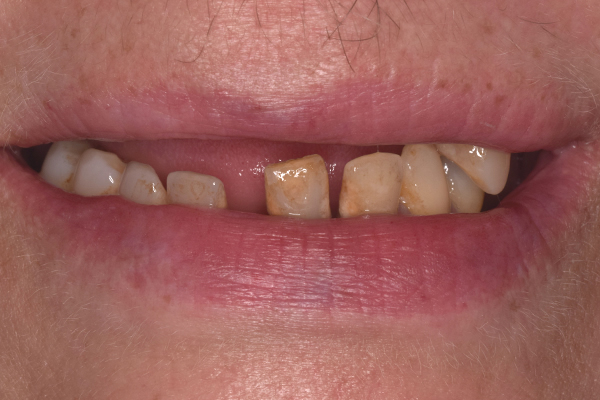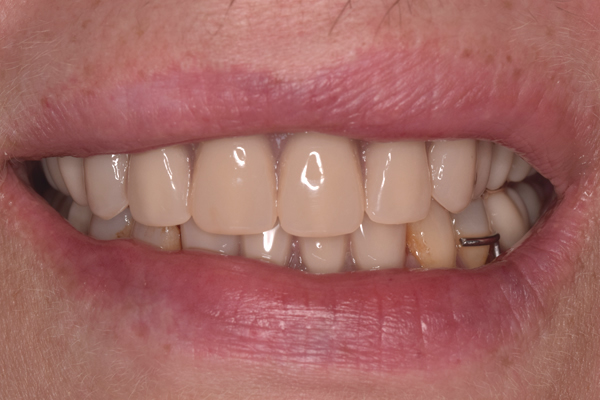At Forest House Dental based in Leicester, we provide high-quality new dentures and reliable repairs to keep you smiling confidently.
Whether you’re getting your first set of dentures or need adjustments and repairs to your current ones, our experienced team is here to help. We ensure a comfortable, secure fit and offer personalised care to make your experience as smooth as possible. From the initial fitting to any adjustments you might need, we’re dedicated to helping you enjoy a natural, comfortable smile every day.
A denture is a removable prosthesis used to replace missing teeth. Commonly referred to as ‘false teeth’, a denture is usually made of acrylic or a combination of acrylic and metal.
A partial denture is fitted to replace some missing teeth whilst a complete denture is indicated when all natural teeth are missing.
A good set of dentures helps you to eat, speak, function, and often improves a person’s appearance.
To help keep the cost of this treatment as affordable as possible, we ensure our prices are extremely competitive compared to other Leicester denture clinics.
Our denture prices start from £595. To see a full list of our latest prices, special offers please see our fees page.
Of course, there are also some potential drawbacks to consider before getting dentures. These include:
Overall, dentures can be a great way to replace missing teeth and improve your quality of life. If you are considering dentures, be sure to talk to your dentist about the benefits and risks to decide if they are right for you.
Eating – Eating will take a little practice. Start with soft foods and foods cut into small pieces will help. Chew slowly using both sides of your mouth at the same time to prevent dentures from tipping. Once you become accustomed to chewing, include other foods until you return to your normal diet.
Increased salivary flow – You may experience an increase in salivary flow when the dentures are first inserted. This is a natural response of the salivary glands that will return to normal after a few weeks. You can improve the situation by swallowing more often.
Speech – New dentures may alter your speech initially. Pronouncing certain words may require practice. Reading out loud and repeating troublesome words will speed up the adaptation process. This problem rarely persists beyond two weeks.
Sore spots – Minor irritation caused by surface irregularities or pressure spots on the denture-bearing areas are quite common. Your dentist will relieve the discomfort by adjusting the denture surface. Stop wearing the denture if the irritation is very painful. Consult your dentist immediately.
At Forest House Dental based in Leicester, we find that dentures typically last around 5 to 10 years with proper care. Over time, natural changes in your mouth can affect the fit, so we recommend regular check-ups to ensure your dentures stay comfortable and functional.
If you’re ever unsure or feel your dentures need adjusting, our team is here to help keep them in top condition for as long as possible.
We design dentures with comfort in mind, aiming for a natural fit that feels as close to real teeth as possible.
While it may take a few weeks to fully adjust to new dentures, most patients find that well-fitted dentures are comfortable for daily wear.
We offer adjustments to ensure they fit securely, helping prevent any sore spots or discomfort.
Regular check-ups can also help maintain their comfort as your mouth changes over time.
If you’re considering dentures, we’re here to guide you through the process for the best possible fit and feel.
Yes, you can eat with dentures!we ensure that your dentures are custom-fitted, making it easier and more comfortable to enjoy your meals. However, it might take a little time to adjust, especially with harder or stickier foods.
We recommend starting with softer foods and cutting items into smaller pieces as you get used to them. Over time, most patients can eat a wide variety of foods with confidence.
If you ever feel discomfort or have difficulty eating, we’re here to help with adjustments to improve your experience.
At Forest House Dental in Leicester, creating custom dentures typically takes between 3 to 6 weeks, depending on the complexity and type of dentures you need.
The process usually involves several appointments to take precise impressions, perform fittings, and make any necessary adjustments to ensure the best fit and comfort. Over time, most patients can eat a wide variety of foods with confidence.
Our team works carefully at each stage to make sure your dentures look natural and feel comfortable.
If you’re interested in getting dentures or have questions about the process, we’d be happy to walk you through each step in more detail!
Adjusting to dentures may feel unusual at first, but most people find they settle in within a few weeks.
We design dentures to ensure a secure, comfortable fit that feels as natural as possible. In the beginning, you might notice a fuller sensation in your mouth or a slight increase in saliva—both are completely normal.
Some patients find that speaking and eating takes a bit of practice, but with well-fitted dentures, these activities soon feel natural again.
Our team is here to guide you through the adjustment period and can make any necessary adjustments to enhance your comfort.
 Before Dentures
Before Dentures
 After Dentures
After Dentures





